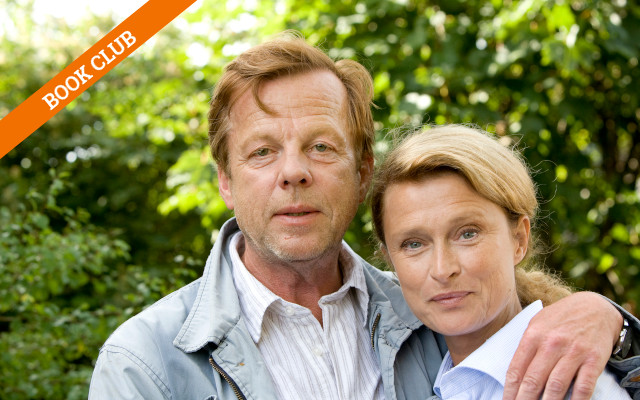As readers, are we are supposed to identify with Kurt Wallander? In what ways is he a typical Swede, and how does he go against the mould?
Henning Mankell's dyspeptic detective Kurt Wallander (which was something of an alter ego for Mankell, despite the author's distancing himself from his creation) is one of the signal creations of contemporary crime fiction: out of condition, diabetes-suffering and with all the headaches of modern society leaving scars on his soul (and the subject of two TV series – one British, one Swedish).
Wallander, full of Swedish introspection, is as rounded a character as any in more literary fiction, one who we identify with, however grim his view of human nature. In such books as Sidetracked and Firewall, non-Swedish readers were taken into pungently realized Scandinavian settings that were subtly similar to Britain, but also fascinatingly different.
What do you think Mankell wanted to show readers about Sweden? And did this change once he achieved international success?
Like the director Ingmar Bergman (to whose daughter Mankell was married), the writer frequently confounds all stereotypical expectations of Nordic gloom (though it's present) and produces books crammed with humanity and guarded optimism, plus the bloodshed and murder that are prerequisites of the crime genre.
His message concerning Swedish culture might be said to have come across in remarks he made to me in our meetings: that the received opinion of Swedes as plagued by angst was balanced by a pronounced concern for humanity and social issues.

Henning Mankell is one of Sweden's leading crime writers. Photo: Adam Ihse/TT
Is there anything unique that Mankell contributed to the development of the Nordic Noir genre?
The keen social conscience that illuminates Mankell's books chimes with his own commitment to make disadvantaged people's lives better: he did a great deal of theatre work in Africa, and his reach as a writer extends beyond the crime genre, with such books as the ambitious Kennedy's Brain (2007), Depths (2004) and Eye of the Leopard (1990).
The latter, straddling the 1970s and 1980s, is a vigorous examination of the relationship between white farmers and their native workers in Africa, with a protagonist battling a hostile land and descending into his own mental firestorm.
In Faceless Killers, many characters have a strong work ethic, working long hours while not feeling well and receiving modest compensation. They also display devotion to each other. Is this a common trait in Nordic Noir?
This is to be found elsewhere in other Scandinavian writers, for example Maj Sjöwall and Per Wahlöö's Beck books, but Mankell virtually copyrighted the notion with Wallander.
Which Nordic Noir books would you recommend to someone who enjoyed Faceless Killers?
The aforementioned Mankell novels Sidetracked and Firewall, plus Arnaldur Indriðason's excellent Jar City, Jo Nesbo's The Redbreast and Åsa Larsson's The Savage Altar. I've been told that my book Nordic Noir is a useful shopping list!

Crime fiction critic Barry Forshaw says a desire for novelty and some schadenfreude could be behind the popularity of Nordic noir. Photo: Barry Forshaw
And why do you think there is such an international fascination with crime fiction set in Sweden?
I've long been investigating just why the field of Swedish and Nordic crime fiction in translation became such a hot ticket in recent years.
The desire for novelty in an exhausted, over-visited field? That is one factor, certainly, but there are a variety of reasons – and looking closely at this phenomenon makes for some fascinating conclusions, relating as much to the insights into Scandinavian society provided by this fiction as much as to any intrinsic literary merit (and regarding the latter, it is undoubtedly true that Nordic crime fiction carries a more respectable reputation – justifiably or otherwise – than similar genre fiction produced in Britain or the US).
Novelty and perceived 'quality' are both factors in the astonishing success in Britain of the genre. And is there – let's be honest – a touch of schadenfreude towards Sweden from other nations? Those in other countries once nourished a very idealized picture of Sweden.
And now – perhaps because of frank and unsparing crime fiction – they seem to have experienced a revelation: the country actually suffers from crime, social problems, pollution, and so on. Just like, in fact, every other country in the world!
Barry Forshaw's books include Crime Fiction: A Reader's Guide, the Keating Award-winning Brit Noir, Euro Noir and Nordic Noir. Other work: British Crime Film, Sex and Film, American Noir and the British Crime Writing encyclopedia (also a Keating Award winner). He writes for various newspapers and edits Crime Time.


 Please whitelist us to continue reading.
Please whitelist us to continue reading.
Member comments